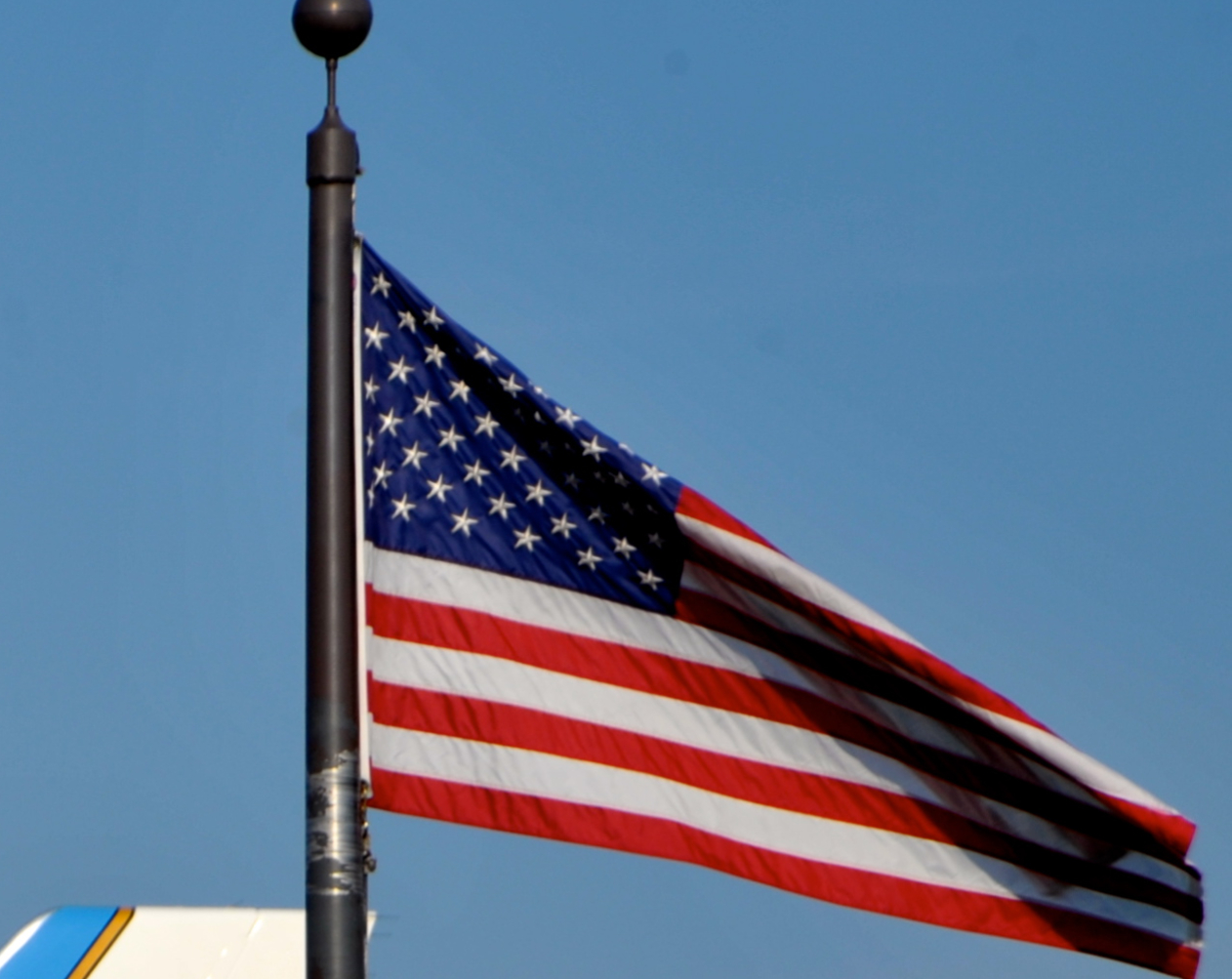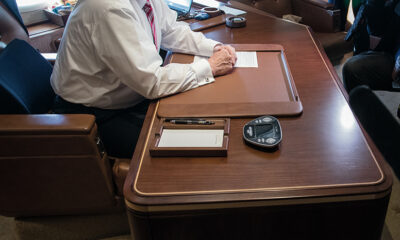Civilization
They Died for Us

The precise numbers are hard to pin down, but from the Revolutionary War to our most recent conflicts post-9-11, reasonable estimates indicate that America has endured over one million military fatalities over the course of our history. Suffice it to say, the nation has shed a profusion of blood for a panoply of reasons – to establish our country, to advance our liberty, to protect the persecuted, to buttress our allies, to secure our interests. But regardless of concern or casus belli, it is important to remember the price paid by our fellow citizens, and to consider the deeper meanings of citizenship and purpose exemplified by the rollcall of our deceased. Moreover, in remembering the fallen, we have an opportunity to learn about what truly makes a nation and a people, and to reacquaint ourselves with what actually matters both in life, and in the case of those who died for their country, in death.
They were ordinary Americans
Who were these exceptional Americans, who secured our power, position, and freedom with their lives? The basic answer is that they are ordinary Americans, who come from the same culture, towns, and society as the rest of us. Of the one million plus citizens who died from combat, many simply fell to enemy fire at places like Normandy or Inchon, aboard the USS Indianapolis, or over Hanoi – they were called to action, followed orders, and did their duty. In other cases, such as the 618 servicemembers who have been posthumously awarded the Medal of Honor, they are citizens who, in moments of terror and confusion unimaginable to most Americans, rose to perform extraordinary feats of valor.
They were Americans like Mikio Hasemoto, a soldier in the 100th Infantry Battalion who braved intense fire in Italy to retrieve multiple weapons to engage the Wehrmacht, ultimately killing over 20 enemy soldiers before being killed himself. Or Rear Admiral Isaac Kidd, Commander of Battleship Division One at Pearl Harbor, who, on December 7th, rushed to the bridge of the USS Arizona and commanded operations aboard ship until a direct hit ended his life. Or Ysmael R. Villegas, who neutralized hostile Japanese combatants in foxhole-after-foxhole on Luzon, before being mortally struck by enemy fire; his actions swelled the spirit of his fellow soldiers, who then cleared the field with a focused counterattack.
They died in Korea, Vietnam,…
In Korea, they were Americans like Anthony T. Kahoʻohanohano who in September of 1951 held off unyielding assaults with accurate fire and hand-to-hand combat, before succumbing to overwhelming enemy odds. Or Herbert K. Pililaau, who, in covering a tactical withdrawal, stubbornly delayed North Korean attacks with everything he had – grenades, fighting knife, his fists – until he was finally overcome. Mitchell Red Cloud Jr., served in combat in the Marine Corps in WWII at Guadalcanal and Okinawa, and then served in the Army in Korea, where, in his final battle, he was shot eight times as he held off waves of Chinese. At Heartbreak Ridge, a wounded Tony K. Burris – a Choctaw soldier from Oklahoma – repeatedly charged enemy positions, exposed himself to draw hostile fire to reveal the adversary, and refused evacuation before his final end.
In Vietnam, they were Americans like James Anderson Jr. – who was black – and Richard A. Anderson – who was white…both Marines fell upon grenades to shield their comrades from devastating shrapnel. As did Terry Teruo Kawamura from Hawaii, Ralph H. Johnson from South Carolina, and Milton L. Olive III from Chicago, who also happens to be the first Black recipient of the Medal of Honor in Vietnam. Laszlo Rabel – after fleeing oppression and tyranny in communist Hungary in 1956 and immigrating to the U.S. – also fatally absorbed a grenade blast in the jungles of Vietnam.
Many more who died
In the roughly thirty years since the end of the Cold War, they have been Americans like Randy Shughart and Gary Gordon, who were not only the first Medal of Honor recipients since Vietnam, but who perished together, holding off militants descending upon a Blackhawk crash-site in the Battle of Mogadishu. More recently, they have been citizens like Alwyn Cashe, who in the cauldron of Iraq, pulled his friends from a blazing armored vehicle while sustaining life-ending burns over most of his body. And men like John A. Chapman, whose skill in coordinating air assets after a forced landing in Afghanistan helped secure the evacuation of his fellow aircrew – all before he died from multiple wounds in a firefight while searching for a missing member of the mission.
There are many others who have not been highlighted here, but whose everlasting contribution to our country and its fellows is no less inspiring or profound. It is hard to say what the individual motivations are for those who sacrificed themselves in war – longer drawn-out situations may have offered some time for assessment, but in most cases likely not. Can any one of us really know what a person thinks before they willingly fall on a grenade?
The promise and idea of America
Beyond their selfless heroism, all these people embody the promise and the idea of America, because for most who willingly take up the call to arms, the promise and idea of America is something worth dying for. And while notions about code and country may not be flashing through the minds of men facing certain death, those who join the service are willing to at least accept the risk of death to defend these deeper values. The U.S. military oath of enlistment, for example, requires one to “defend the Constitution of the United States,” and “to bear true faith and allegiance to the same” – it is nothing if it is not an obligation to defend a set of principles.
Moreover, this deeper sense of cause and allegiance is not resident only in special groups of anointed people – or only possessed by a credentialed class – or only believed and felt by those with a certain skin color. On the contrary, those who have died for the nation – like the men described above – represent a great and diverse cross-section of the citizenry. Americans of all races, ethnicities, and walks of life raised their hands for the freedom of others. Not just the freedom of life for their fellow troops, but the opportunity for future generations to live both protected and free.
Those who paid the price
In recognizing their commitment, we are reminded that what we enjoy today has not been secured without a reckoning – and that Americans gave their lives for other Americans whom they didn’t even know, without prejudice, superficial critique, or calculation. It did not matter what distant battlefield they fought upon or how they perished – they died not for self-satisfaction, or identity affirmation, or praise. They died not to establish a legacy or an agenda.
Rather, they died for each other and their country, and in dying for their country they died for the hope that America, and its citizenry, could continue forth in a just and decent way, for noble purpose, after their passing.
Indeed, they died for us.
This article was originally published by RealClearDefense and made available via RealClearWire.
Connor Martin is a U.S. Marine veteran and policy analyst in Washington DC.
-

 Accountability3 days ago
Accountability3 days agoWaste of the Day: Principal Bought Lobster with School Funds
-

 Civilization1 day ago
Civilization1 day agoWhy Europe Shouldn’t Be Upset at Trump’s Venezuelan Actions
-

 Executive2 days ago
Executive2 days agoHow Relaxed COVID-Era Rules Fueled Minnesota’s Biggest Scam
-

 Constitution3 days ago
Constitution3 days agoTrump, Canada, and the Constitutional Problem Beneath the Bridge
-

 Christianity Today24 hours ago
Christianity Today24 hours agoSurprising Revival: Gen Z Men & Highly Educated Lead Return to Religion
-

 Civilization2 days ago
Civilization2 days agoThe End of Purple States and Competitive Districts
-

 Executive2 days ago
Executive2 days agoWaste of the Day: Can You Hear Me Now?
-

 Civilization5 days ago
Civilization5 days agoThe Conundrum of President Donald J. Trump









